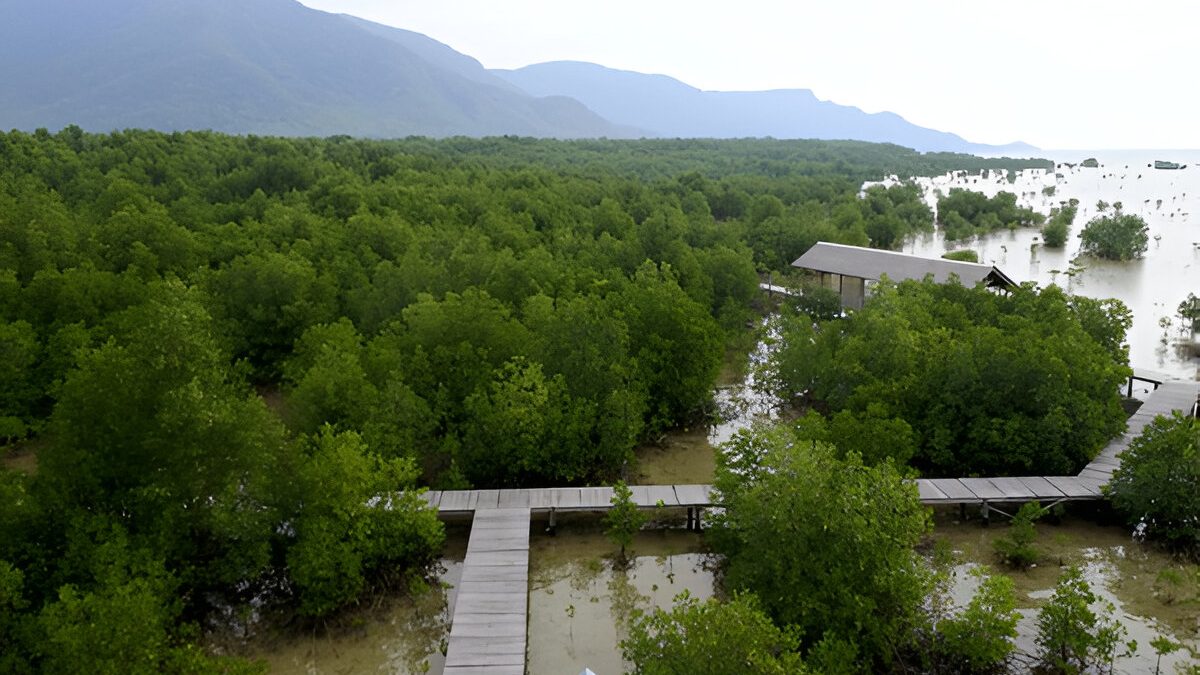Discover Mangrove Ecotourism: Protecting Nature While Empowering Communities

Karimun Jawa Mangrove National Park (Photo Credit : Zakariya AF)
Mangrove ecotourism is becoming a shining example of how nature and people can thrive together. But what exactly is mangrove ecotourism, and why is it so important for coastal areas around the world?
What is Mangrove Ecotourism?
Mangrove ecotourism is a special kind of travel that invites people to explore mangrove forests, a unique coastal ecosystem where land meets sea. These mangrove forests act as natural shields against storms and erosion, provide homes for countless plants and animals, and help keep our coastlines healthy.
Unlike traditional tourism, mangrove ecotourism focuses on protecting the environment and supporting the local communities who live nearby. Visitors get a chance to learn about these vital ecosystems firsthand, helping to raise awareness about the importance of preserving nature.
Why is Mangrove Ecotourism So Promising in Indonesia?
Indonesia is a mangrove hotspot, with one of the largest mangrove areas in the world. Take Karangsong Village in West Java, for example. Since 2008, this village has worked together with the government to restore mangrove forests. Thanks to these efforts, more than 50,000 visitors come each year to enjoy the natural beauty while supporting local livelihoods.
Another great example is Karimunjawa National Park in Central Java. This protected area balances tourism with careful monitoring of how many visitors the mangroves can handle without harm. Thanks to cooperation among park authorities, local communities, and researchers, Karimunjawa’s mangrove ecotourism is thriving sustainably.
Mangrove Ecotourism Around the World
Mangrove ecotourism is not just an Indonesian success story. In countries of the Gulf Cooperation Council (GCC) like Saudi Arabia and the United Arab Emirates, mangroves are helping diversify economies while protecting fragile coastal environments. These countries are developing nature-based tourism that attracts eco-conscious travelers looking for unique experiences.
The Many Benefits of Mangrove Ecotourism
- Protecting Nature
When visitors come to mangrove areas with respect and care, it helps fund conservation and reduces harmful activities. This keeps mangrove forests healthy for future generations.
- Empowering Communities
Mangrove ecotourism creates jobs and income for locals—whether as tour guides, small business owners, or hospitality workers. Partnerships involving government, academics, NGOs, and media—known as the Penta Helix model—help ensure communities share in the benefits.
- Boosting Sustainable Economies
Ecotourism brings sustainable money into coastal regions, reducing pressure on natural resources while encouraging environmental stewardship.
Challenges and Smart Solutions
Mangrove ecotourism isn’t without challenges. Too many visitors, unclear policies, or lack of community involvement can threaten mangrove health. In places like Sorong City, Papua Barat, inconsistent regulations and low public participation have posed problems.
But smart strategies can make a difference:
- Bringing together all stakeholders—government, private sector, scientists, NGOs, and communities—to work as a team.
- Training locals to run and care for ecotourism activities.
- Limiting visitor numbers based on the mangrove’s ability to recover.
- Using modern tools like satellite imaging and AI to monitor ecosystem health and guide decision-making.
Why It Matters
Mangrove ecotourism shows us a hopeful path forward—one where nature conservation and community prosperity grow hand in hand. For Indonesia and many other countries, investing in these green treasures offers a chance to build a more sustainable, resilient future.
So next time you’re near the coast, consider visiting a mangrove forest. You’ll not only enjoy a unique natural experience but also support a movement that helps protect our planet.
-Rika Novida
References
Azzahra, P. R., Sumarga, E., & Sholihah, A. (2023). Mangrove Ecotourism Development at Karimunjawa National Park, Indonesia. Biodiversitas, 24(8), 4457-4468. https://doi.org/10.13057/biodiv/d240827
Lewenussa, R. (2023). Sustainable Mangrove Ecotourism Management Strategy in the Penta Helix Model, Sorong City, West Papua Province. AEBMR Proceedings, 87-104.
Moussa, L. G., Mohan, M., Burmeister, N., et al. (2024). Mangrove Ecotourism along the Coasts of the Gulf Cooperation Council Countries: A Systematic Review. Land, 13(9), 1351. https://doi.org/10.3390/land13091351
Novianti, R., Afandi, A. Y., Tampubolon, B. I., Rahmadya, A., & Sulawesty, F. (2022). Mangrove Resource and Ecotourism Development in Karangsong, Indramayu Regency, West Java, Indonesia. IOP Conference Series: Earth and Environmental Science, 1062(1), 012039. https://doi.org/10.1088/1755-1315/1062/1/012039

